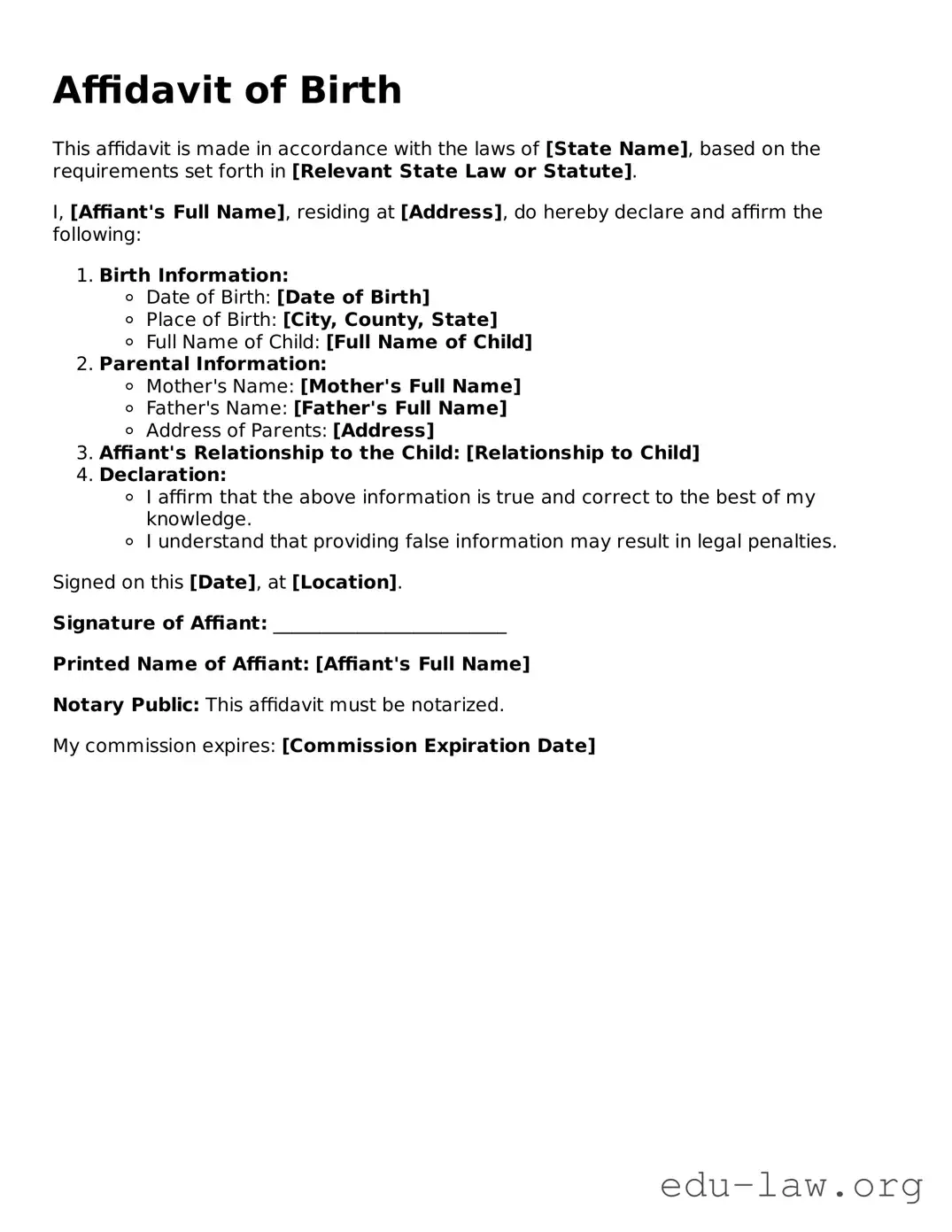What is an Affidavit of Birth?
An Affidavit of Birth is a legal document used to establish a person's birth details when an official birth certificate is not available. This affidavit typically contains information regarding the individual’s birth, including the date, place of birth, and the identity of the parents. It serves as a sworn statement made under oath, making it an important tool for legal identification and citizenship purposes.
Who can sign the Affidavit of Birth?
The Affidavit of Birth can be signed by individuals who have personal knowledge of the birth details. This may include parents, guardians, or other relatives who were present at the time of birth. In some cases, medical professionals or officials who were involved in the birth process may also have the authority to sign the affidavit. Their testimony adds credibility and authority to the document.
Why might someone need an Affidavit of Birth?
There are several scenarios in which an Affidavit of Birth might be necessary. For many, it can be crucial when applying for certain legal documents, such as a passport, social security number, or driver's license, especially if the official birth certificate is lost or not issued. Adoption proceedings, obtaining school records, or applying for government benefits also often require proof of birth, making this affidavit essential.
How is an Affidavit of Birth completed?
Completing an Affidavit of Birth involves filling out the required details accurately. Typically, the form will request information such as the child's full name, date of birth, and place of birth, along with the names of the parents. After all parties sign the document, it may need to be notarized, confirming the identities of the signers and the authenticity of the signatures. This step is critical for the affidavit's acceptance in legal matters.
Is an Affidavit of Birth legally binding?
Yes, an Affidavit of Birth is legally binding. Once the document is signed and notarized, it carries the weight of an official statement under oath. Misrepresentations or false statements can lead to legal implications, including potential charges of perjury. Therefore, it is vital to ensure that all information provided in the affidavit is accurate and truthful to avoid future complications.
Where should an Affidavit of Birth be submitted?
The submission location for an Affidavit of Birth varies based on the intended use. If it is for official purposes such as obtaining a birth certificate or legal identification, it may need to be submitted to state or local vital records offices. For other applications, such as school enrollment or government assistance, the affidavit should be provided directly to the requesting agency or institution. Always check with the specific entity to ensure proper submission procedures are followed.
Are there any fees associated with obtaining or submitting an Affidavit of Birth?
Fees may vary depending on the state and the specific circumstances surrounding the affidavit. While there may not be a fee for simply creating the affidavit, there could be costs related to notarization services, particularly if you require a notary public. Additionally, submitting the affidavit to governmental agencies might incur processing fees. It is best to inquire about potential costs upfront to avoid surprises.
Can an Affidavit of Birth be used in place of a birth certificate?
An Affidavit of Birth can serve as an alternative to a birth certificate in certain situations, especially when an official birth certificate is unavailable. However, acceptance can vary by jurisdiction and institution. Some agencies may require an original birth certificate, while others may accept the affidavit if it is properly executed and notarized. Always check with the specific agency regarding their requirements.
